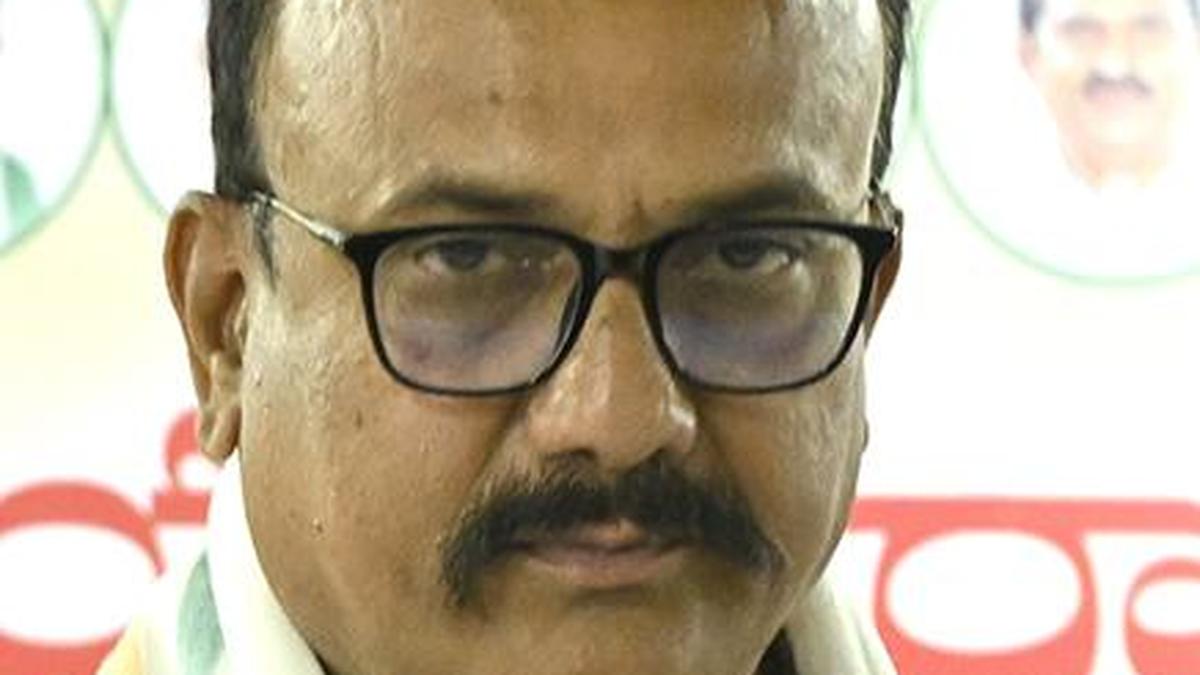In an attempt to revive its fading influence in Maharashtra, two months after a crushing defeat in the Assembly elections, the Congress leadership on February 13, 2025, named former party MLA Harshwardhan Sapkal as the new State president, replacing Nana Patole.
With the party’s strength reduced to just 16 seats in the 288-member Assembly, Mr. Sapkal, a lesser-known figure in Maharashtra’s high-octane political arena, faces an uphill battle.
Also read:Maha victory: On the Mahayuti and the Maharashtra election result
His immediate challenges include navigating internal divisions, strengthening the party at the grassroots level by rebuilding morale among cadre and fostering a cooperative relationship with allies — the Shiv Sena (UBT) and the Nationalist Congress Party (SP). Beyond these, his ability to forge a cohesive strategy to counter the ruling Bharatiya Janata Party’s dominance will be critical for the party to regain its footing. The new State unit chief’s leadership will face its first major test in just a few months, as local body elections are scheduled for April, offering a crucial opportunity to demonstrate his ability to unite the party and deliver results.
However, his appointment has taken many by surprise, including those in the ruling alliance, as it breaks from the Congress’s traditional practice of selecting seasoned leaders with a strong grassroots base to head the State unit.
Instead, the party has chosen Mr. Sapkal, a figure known more for his ideological commitment than his political prominence. A close associate of Congress leader Rahul Gandhi, Mr. Sapkal identifies himself as a dedicated ‘Sarvodayee’ — a follower of the Gandhian philosophy conceptualised by Acharya Vinoba Bhave, which envisions a classless and equitable society.
While top leaders frame the appointment as a bold experiment to elevate a grassroots leader — someone who climbed the ranks from sarpanch to MLA — to boost morale among party workers, it is no secret that Mr. Sapkal was far from the first choice for the role. In fact, he was not even among the top contenders.
Glaring aspect
A glaring aspect of this reshuffle is the unwillingness of prominent leaders, particularly from Western Maharashtra, to take on the mantle of State president. This region, once a Congress stronghold, has seen the party’s influence erode significantly over the last decade. Insiders reveal that many leaders viewed the position as a “burdensome task” or a “white elephant,” fearing their efforts to rebuild the party could be wasted if they were replaced before the next elections.
“For many, the role of PCC (Pradesh Congress Committee) chief is more than just a position. In the past, leaders would flock to the AICC headquarters, eager to showcase their capabilities and vie for what was considered a prestigious responsibility. However, the situation has changed drastically. Recently, leaders from Maharashtra were in New Delhi, but not to pitch themselves for the role. Instead, they were there to express their unwillingness, citing personal and business commitments, and pleading not to be appointed,” a senior party leader revealed.
Internal crisis
This lack of willingness reflects a broader crisis of confidence within the party. Younger leaders, who could have seen this as an opportunity to grow, instead perceived it as a thankless job with little reward. Even former Ministers from the Maha Vikas Aghadi (MVA) government declined the role, signalling a lack of faith in the party’s ability to stage a comeback.
A former State-level kabaddi player, Mr. Sapkal is believed to bring a deep understanding of ‘teamwork’ to his new role — drawing parallels to the sport where players “hold hands, strategise together, and leap forward to outmanoeuvre their opponents.” This skill could be crucial as he steps into a position previously marred by discord under his predecessor, Mr. Patole, who resigned, taking moral responsibility for the party’s dismal electoral performance.
The outgoing MPCC chief faced criticism for his isolated style of functioning. Senior leaders such as Prithviraj Chavan, Ashok Chavan (now with the BJP), Sushilkumar Shinde, Balasaheb Thorat, and Vijay Wadettiwar were reportedly sidelined during his tenure, leading to a lack of unity within the party. Additionally, allies in the MVA, including the Shiv Sena (UBT) and NCP (SP), often bypassed Mr. Patole and directly approached the national leadership, further weakening his authority.
The appointment is not only a chance for Mr. Sapkal but also a critical moment for the party’s leadership in New Delhi. During Mr. Patole’s tenure, alliance partners often communicated directly with Mr. Gandhi and other senior leaders, frequently meeting them in New Delhi without keeping the State leadership in the loop. This practice marginalised and weakened the influence of local leadership.
Need for unity
Now, the leaders from the western State hope the high command will ensure that alliance partners no longer engage with them directly without the presence or knowledge of the newly appointed MPCC chief. They argue that this step is essential to strengthening the state leadership’s authority in the MVA and fostering greater unity within the party.
“If the Thackeray or Pawar family seeks their (top leaders) appointment or call them over the phone to discuss state politics, it should not happen without the presence or knowledge of the MPCC chief, sending a clear message to the allies,” another leader said.
For the Congress, the road ahead is fraught with challenges, and it has to move beyond factionalism and undertake a determined effort to rebuild its grassroots and reclaim lost ground in the State that was once its stronghold.
Published – February 14, 2025 01:23 pm IST
